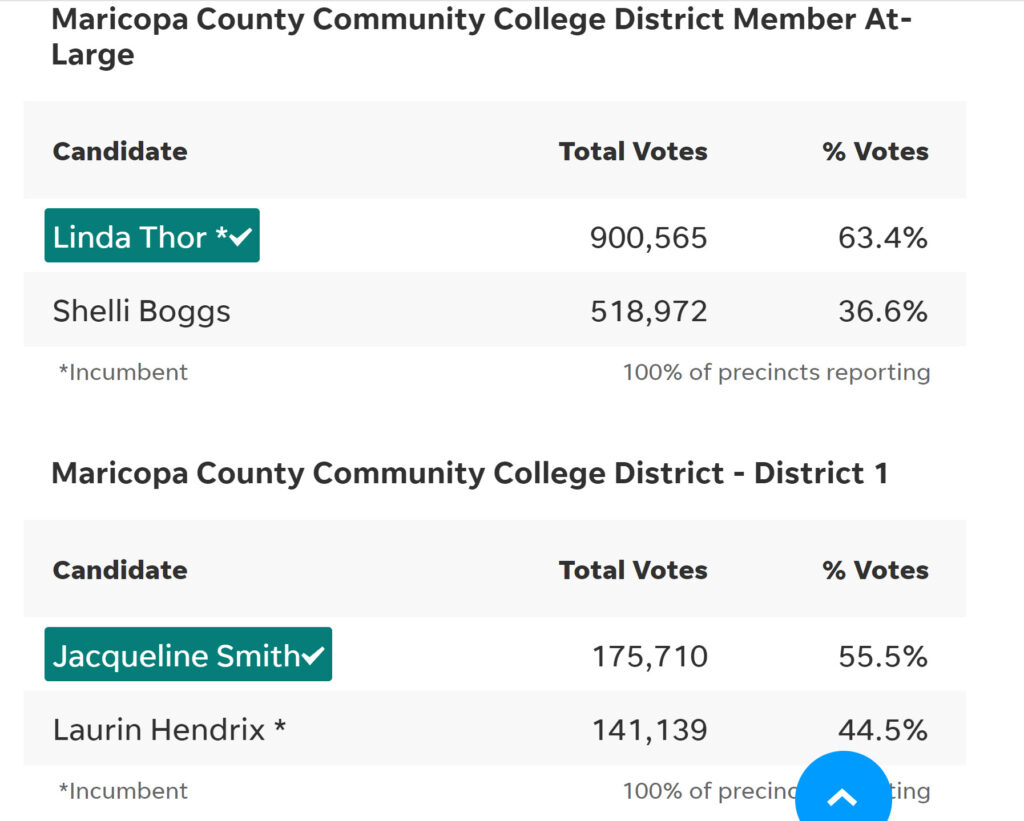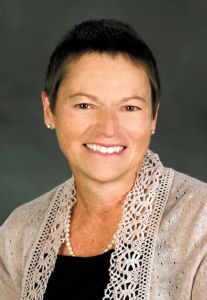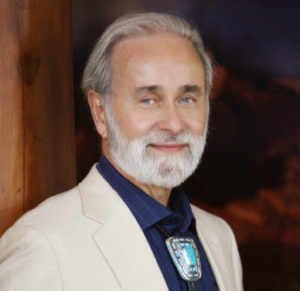A bill that would allow community colleges to offer some four-year degree programs recently passed in the Arizona House with a 57-3 vote; agreement struck with Arizona Board of Regents not to oppose it
 A bill is winding its way through the Arizona Legislature that if finally approved will allow Community Colleges in the State to offer some 4-year degree programs. It recently passed in the Arizona House by a 57-3 vote.
A bill is winding its way through the Arizona Legislature that if finally approved will allow Community Colleges in the State to offer some 4-year degree programs. It recently passed in the Arizona House by a 57-3 vote.
This year proponents of the bill, which is sponsored by conservative Republican Representative Becky Nutt, met with representatives from the Arizona Board of Regents, which oversees the state’s public universities. Compromises were made on the proposal so the Board of Regents would stay neutral on the bill, rather than oppose it.
If this bill passes, it is possible that Yavapai Community College could create four-year programs in areas with high workforce demand such as health care, applied technology and education. It is estimated that the cost to convert some of the two-year degree programs would be minimal since faculty and other infrastructure is already in place.
 According to a story in the Arizona Republic of November 9, 2020 by Anne Ryman, the Arizona Attorney General’s Office has closed its open meeting law investigation involving Maricopa Community College. It concluded it could not substantiate a violation of state law.
According to a story in the Arizona Republic of November 9, 2020 by Anne Ryman, the Arizona Attorney General’s Office has closed its open meeting law investigation involving Maricopa Community College. It concluded it could not substantiate a violation of state law.
 The Maricopa Community College District Governing Board race has become heated for at least two of the four candidates seeking office this year. In a story written by Anne Ryman in the Arizona Republic on Sunday, October 18, the campaigns of candidate Shelli Boggs and incumbent Laurin Hendrix appear to have become involved in unusual stormy political tactics for these nonpartisan positions.
The Maricopa Community College District Governing Board race has become heated for at least two of the four candidates seeking office this year. In a story written by Anne Ryman in the Arizona Republic on Sunday, October 18, the campaigns of candidate Shelli Boggs and incumbent Laurin Hendrix appear to have become involved in unusual stormy political tactics for these nonpartisan positions.  The search for a new chancellor at Maricopa Community College was allegedly disrupted and stopped in August because of the actions of a single Governing Board member on the search committee, Kathleen Winn. In an article in Inside High Ed, reporter Madeline St. Amour wrote that an investigation found that Winn, who was a member of the search committee for a new chancellor, tainted the process “by violating a confidentiality agreement and attempting to persuade a candidate to not apply for the position.”
The search for a new chancellor at Maricopa Community College was allegedly disrupted and stopped in August because of the actions of a single Governing Board member on the search committee, Kathleen Winn. In an article in Inside High Ed, reporter Madeline St. Amour wrote that an investigation found that Winn, who was a member of the search committee for a new chancellor, tainted the process “by violating a confidentiality agreement and attempting to persuade a candidate to not apply for the position.”
 Third District Paul Chevalier publicly responded to the letter adopted by the Yavapai Community College Governing Board at its Governing Board meeting on September 8 regarding transparency in his individual capacity as the Third District Yavapai Community College Representative. In his response, Chevalier compared the College’s 28 page $84 million budget with entities such as the cities of Cottonwood (budget 310 pages), Prescott (307 pages) and Prescott Valley (309 pages), NAU (187 pages) and others.
Third District Paul Chevalier publicly responded to the letter adopted by the Yavapai Community College Governing Board at its Governing Board meeting on September 8 regarding transparency in his individual capacity as the Third District Yavapai Community College Representative. In his response, Chevalier compared the College’s 28 page $84 million budget with entities such as the cities of Cottonwood (budget 310 pages), Prescott (307 pages) and Prescott Valley (309 pages), NAU (187 pages) and others. An open letter to the public in which Third District Representative Paul Chevalier expressed his view that the Community College budgeting process should be more transparent ruffled the feathers of some members of the District Governing Board. The letter, a copy of which was published by this Blog July 21, 2020, caused Governing Board Chair, Deb McCasland to draft a response that was adopted in a 4-1 vote.
An open letter to the public in which Third District Representative Paul Chevalier expressed his view that the Community College budgeting process should be more transparent ruffled the feathers of some members of the District Governing Board. The letter, a copy of which was published by this Blog July 21, 2020, caused Governing Board Chair, Deb McCasland to draft a response that was adopted in a 4-1 vote.